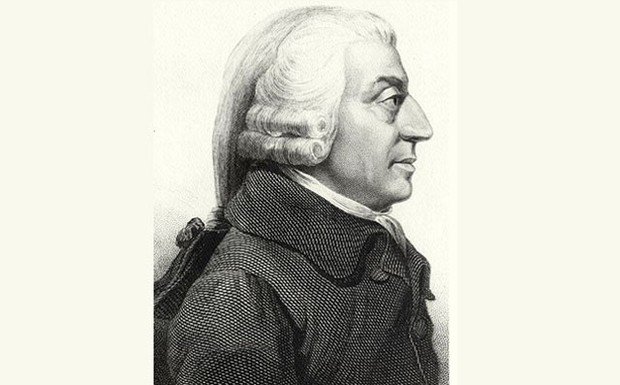Adam Smith: The father of the economy
It was almost 250 years ago. Scottish economist Adam Smith wrote that the book, like the Bible of Capitalism, the Wealth of Nations, which makes him known as the father of modern economics.
According to the report 'Adam Smith Biography' on the biography.com website, his birth in Scotland was estimated in 1723. Two months after the birth, Smith became orphan. He was a philosopher, educationist, journalist, scholar, economist, political scientist.
In the academy, Smith was admitted to a famous school in Scotland. There he read about Latin language, mathematics, history and literature. And at the age of 14, he was admitted to Glasgow University and went to Oxford at the age of 17.
Smith began Universal Series lecture at Edinburgh University in 1748. Through this speech, in 1750 he became acquainted and became a friend with Scottish philosopher and economist David Hume. This relationship gave Smith the opportunity to work at the Faculty of Glasgow in 1751.
After nine years of hard work on the contemporary economic system, Smith Smith wrote about the nature and causes of the book, 'Wealth of Nations', in 1776. Which is considered to be the first to write a political economy.
Moreover, the writings of the Wealth of Nations brought Smith a far-reaching reputation. This book, written by him, is considered the root of the classical economy and receives the most prominent book authorship.
The economy of that time was so that the national wealth of a country was measured on the basis of gold and silver in the country. Smith suggested that national wealth should not be judged in this way, rather it should rely on the country's total production and total trade, which we now call the GDP or Gross Domestic Product.
He is also a proponent of the division of finance for distribution of workers. Through this, special quality and productivity increase.
Smith's idea, essentially an economic reflection of the beginning of industrial revolution and free market economy is most fruitful and beneficial for society. An economic system based on individual interests is proved by its argument that is operated by 'invisible hand' and the best for everyone.
In 1759, Smith wrote 'The Theory of Moral Sentiments'. The main argument of which is that human morality depends on the person and the sympathy of other members of society. This book conveys him the unique height. He was seen during his visit to France with the then-time great thinker Benjamin Franklin and French economist Turget.
Smith has worked on diverse issues outside the economy. It includes topics such as' Come on Philosophical Subject, History of Astronomy Enstant Physics, Metaphysics, Lecture on Jurisprudence, Lectures on Justice, Police, Revenue and Arms.
In 1787, Smith was appointed as the Principal of Glasgow University and died on July 17, 1790, at the age of 67, just three years later.
